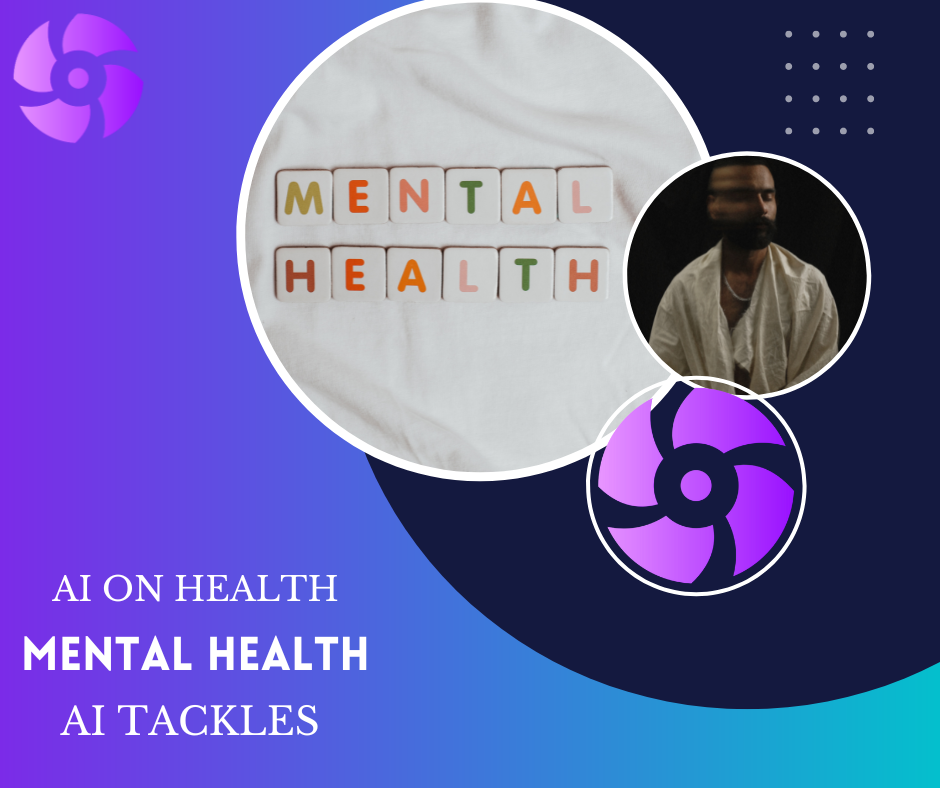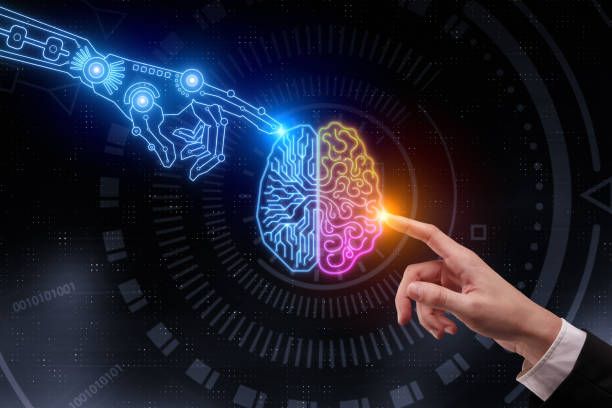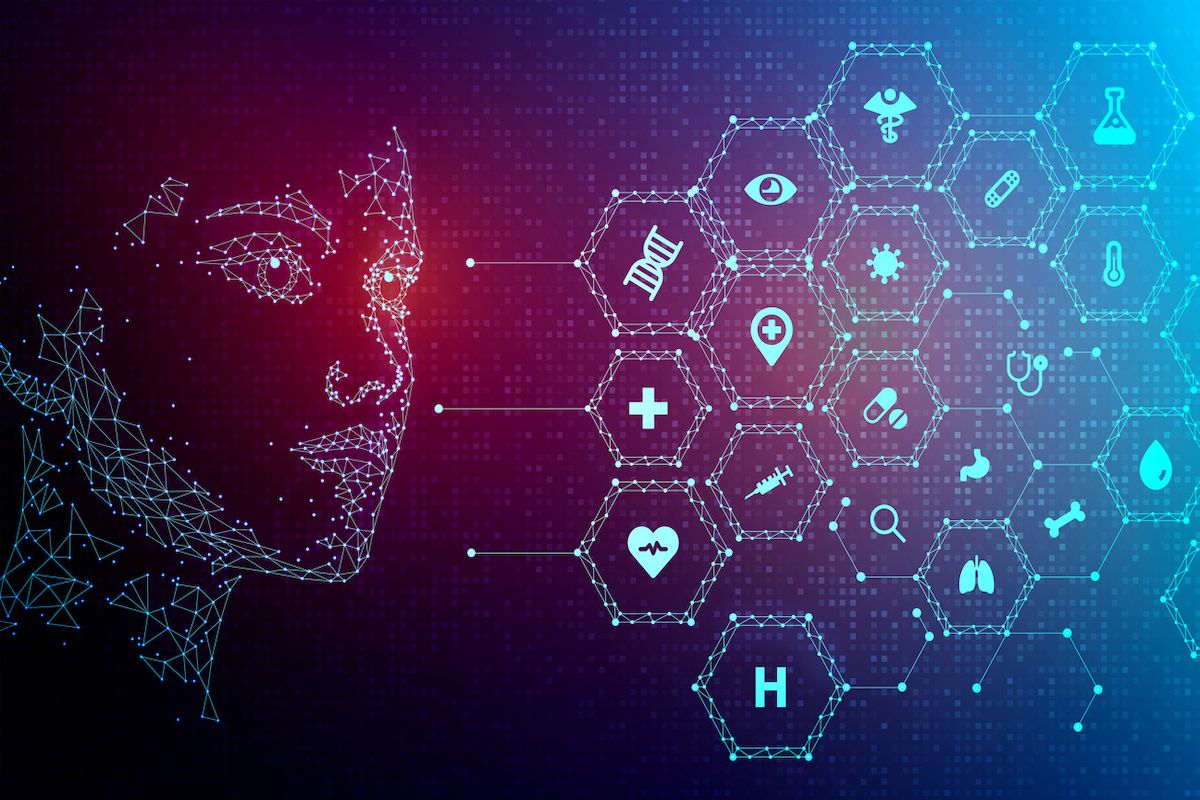The Future of Mental Health: 5 Ways AI is Revolutionizing the Treatment of Depression
Whether you're a sufferer or a loved one searching for answers, this article provides a comprehensive overview of the exciting advancements being made in the field of AI-powered mental health care.

The Power of AI: Transforming the Landscape of Depression Care and Support

Depression can be a dark and lonely place, but with the help of AI, it doesn't have to be. Whether you're a sufferer or a loved one searching for answers, this article provides a comprehensive overview of the exciting advancements being made in the field of AI-powered mental health care. From personalized therapy to predictive analytics, we explore the many ways AI is helping to tackle depression head-on and provide you with the information you need to take control of your mental well-being. So, if you're ready to explore the future of depression treatment, read on and discover the power of AI.

Revolutionizing Care Through Personalized Therapy: AI-Powered Chatbots and Virtual Assistants
Personalized therapy is one of the most exciting ways that AI is revolutionizing the treatment of depression. With the help of AI-powered chatbots and virtual assistants, sufferers of depression can receive therapy and support whenever and wherever they need it. This 24/7 access to care is a major departure from traditional mental health treatment, which often requires in-person visits to a clinician during limited office hours.
Personalized therapy can include a variety of approaches, such as cognitive behavioral therapy (CBT) and mindfulness exercises, tailored to each individual's specific needs and preferences. With AI, patients can receive care that is not only more convenient and accessible but also more personalized and effective. By utilizing AI technology, patients can take control of their mental health and receive the support they need to overcome depression and other mental health conditions.

Early Intervention through Predictive Analytics: The Power of AI in Understanding and Treating Mental Health Conditions
Predictive analytics is another innovative way that AI is transforming the treatment of depression. With the ability to analyze data from a wide range of sources, such as patient health records, social media activity, and wearable devices, AI algorithms can help predict the onset of depression and other mental health conditions. This early warning system provides healthcare professionals with valuable insights, allowing them to intervene and provide treatment before the condition worsens... depression is a condition in which treatment gets harder as it develops.
One of the biggest benefits of predictive analytics is that it allows for earlier and more targeted treatment of depression and other mental health conditions. By using data to identify patterns and trends, AI algorithms can help healthcare professionals create tailored treatment plans that are specific to each individual's needs. This proactive approach to mental health care has the potential to transform the lives of people with depression and other mental health conditions, providing them with the support and care they need to overcome their struggles and live happier, healthier lives.

Uncovering the Hidden Patterns: How AI is Revolutionizing Symptom Tracking for Depression
Symptom tracking is another innovative way that AI is transforming the treatment of depression. By utilizing AI technology, patients can easily track and monitor their symptoms and mood patterns, providing valuable insights into the course of their condition. This information is not only helpful for patients, but also for healthcare professionals, who can use it to improve treatment plans and monitor progress over time.
With AI-powered symptom tracking, patients can keep track of their symptoms on a daily basis, making it easier to identify patterns and triggers. This information can then be shared with healthcare professionals, who can use it to better understand the patient's condition and develop more effective treatment plans. For example, if a patient's symptoms worsen during a particular time of day or week, healthcare professionals can use this information to determine the root cause and develop strategies to address it. By utilizing AI technology, patients and healthcare professionals can work together to tackle depression and other mental health conditions head-on... with an artificial twist!

Optimizing Dosages and Minimizing Risks: The Impact of AI on Medication Management for Depression
Medication management is a critical component of treating depression, and AI-powered tools are making it easier and more effective. AI can assist patients in optimizing their medication dosages, ensuring that they are receiving the right amount of medication at the right time. This can help to prevent interactions with other medications, as well as identify any potential side effects that may be present. With AI-powered tools, patients can receive the most effective and safe treatment possible, minimizing the risk of adverse effects and maximizing the chances of success... and good app designers can even gamify the whole ordeal, making it painlessly easy to follow!
AI-powered tools can also help to simplify the medication management process for patients and make it fun. For example, virtual assistants can remind patients to take their medication and provide educational information about the drug, such as its purpose, side effects, and proper usage - and even attribute badges, points, and achievements for correct and disciplined use. This can help to increase patient compliance, ensuring that they receive the full benefit of their medication regimen. By utilizing AI technology, patients can receive comprehensive and effective medication management, improving their chances of overcoming depression and maintaining their mental well-being.

Overcoming Barriers to Care: How AI is Improving Access to Quality Treatment for Depression
Improved access to care is a major benefit of using AI-powered technology for depression treatment. With AI tools and virtual assistants, patients can receive care from the comfort of their own homes without the need for in-person visits to a clinician. This overcomes barriers such as cost, time, and location, providing more people with access to quality care. AI technology offers a convenient and accessible alternative for those who live in rural or remote areas, have mobility issues, or cannot afford in-person therapy - which is effective, but expensive.
In addition, AI-powered technology can improve the quality of care patients receive. Virtual assistants can provide 24/7 support, allowing patients to access care whenever they need it. The virtual assistants can also provide evidence-based therapies like cognitive behavioral therapy (CBT), mindfulness exercises, and more. This ensures that patients receive the most effective treatment possible. AI technology can also reduce the burden on healthcare systems and increase efficiency, freeing up clinician time for more complex cases and reducing wait times for patients.
All-in-all, AI is revolutionizing the way we treat depression and helping more people access quality care. From personalized therapy and symptom tracking to medication management and improved access to care, the benefits of AI in the treatment of depression are numerous.
With AI technology, patients can receive evidence-based care from the comfort of their own homes, overcoming barriers such as cost, time, and location... and this is even more vital in the future as mental health issues are sadly growing.
As AI continues to evolve and improve, it has the potential to transform the way we approach mental health and provide more people with access to the care they need. By utilizing AI-powered technology, we can create a future where depression is effectively treated and people can lead happier healthier lives.

